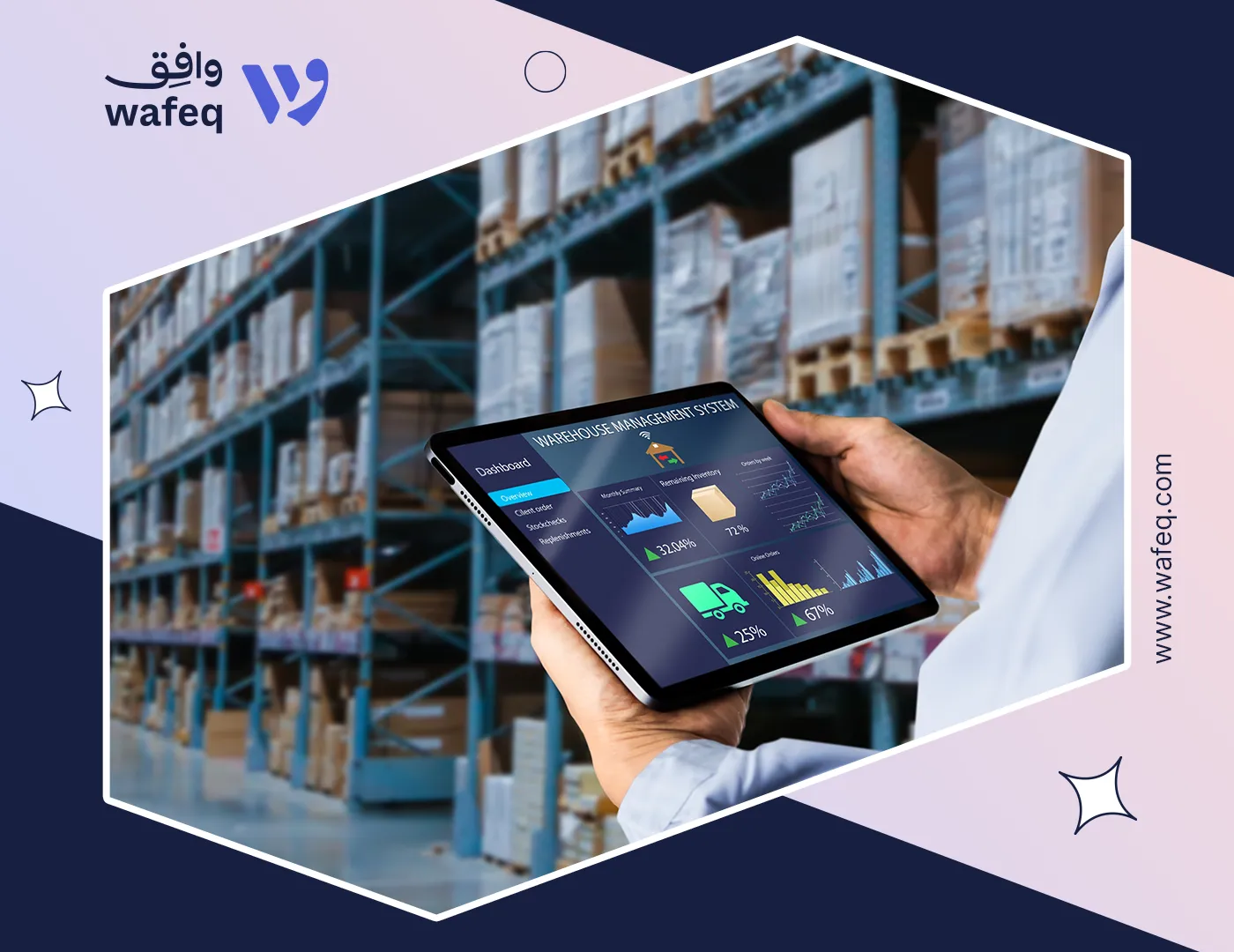How Accounting Software Localization Enhances Compliance and Usability in Saudi Arabia

It was the end of the fiscal quarter, and Khalid, a Saudi finance manager, had been juggling between Arabic invoices for local clients and English reports for international partners. Every time he switched systems or translated numbers manually, errors crept in—and time slipped away. He soon realized that the issue wasn’t his team’s efficiency but the software’s inability to speak his business languages, Arabic, English, and Riyal. This is where localized accounting software becomes not just a convenience, but a necessity for modern Saudi companies.
Accounting software localization has become essential in today’s Saudi market, where Arabic and English coexist, and ZATCA compliance defines how businesses operate. This article explores how localized accounting systems, designed for Saudi taxation, bilingual users, and the Saudi Riyal, can help companies save time, reduce errors, and achieve complete financial compliance.
Understanding Accounting Software Localization
Localization goes far beyond simple translation. While translation converts words from one language to another, localization adapts the entire software experience to a specific country's culture, legal requirements, currency, date formats, and workflows. This distinction can mean the difference between compliance and costly errors in accounting systems. For example, translating “Invoice” into Arabic as “فاتورة” is a matter of language. But ensuring that this invoice matches ZATCA’s e-invoicing structure, displays amounts in Saudi Riyals (SAR), and complies with right-to-left Arabic text alignment, that’s localization.
Localization in financial software ensures that every calculation, label, and report aligns with local accounting standards, tax codes, and business practices. Without it, businesses risk non-compliance, inaccurate reporting, and confusion among bilingual teams.
The Need for Localization in Saudi Arabia
Saudi Arabia’s business environment is unique in the region — dynamic, bilingual, and rapidly digitalizing. In most Saudi companies, finance teams operate in Arabic and English: Arabic for local suppliers, employees, and regulatory communication; English for investors, partners, and multinational reporting. This duality creates a daily operational challenge. Accountants often switch between Arabic invoices and English reports, translate entries manually, or use workarounds to align formats. Without a localized system, these tasks waste time, increase the chance of human error, and complicate compliance.
Another critical factor driving localization in Saudi Arabia is regulatory compliance. With the Zakat, Tax, and Customs Authority (ZATCA) enforcing structured e-invoicing, VAT reporting, and corporate tax requirements, businesses must ensure their accounting software can generate ZATCA-compliant invoices, support Arabic tax terminology, and report in Saudi Riyals (SAR). As well as, Saudi Arabia’s Vision 2030 initiative emphasizes the shift toward full digital transformation and automated reporting. This push has accelerated the adoption of cloud-based, localized accounting software designed specifically for Saudi regulations and language needs.
know more about: Saudi Arabia’s Vision 2030: A Transformational Shift in Accounting Practices
Arabic + English Interface — The Bilingual Advantage
In Saudi Arabia, where business operations naturally flow between Arabic and English, a bilingual interface is not just a design preference — it’s a productivity tool. Finance professionals often work with bilingual teams, clients, and regulators, and the ability to switch between languages within the same software is crucial for efficiency and accuracy.
- A bilingual user interface (UI) enables accountants to input, review, and report data in the language that is most comfortable or required for their task. For example, invoices may be created in Arabic for local clients, while management reports are generated in English for international partners or auditors. Without such flexibility, teams spend extra time translating, cross-checking, and reconciling reports.
- Moreover, a bilingual UI helps prevent misunderstandings caused by inconsistent terminology. Accounting terms such as “Depreciation, “Retained Earnings” or “Payables” can have multiple Arabic equivalents depending on context. Localized systems standardize these terms, ensuring that Arabic and English users interpret financial data consistently.
- Another important factor is right-to-left (RTL) support for Arabic. A properly localized interface respects direction, font rendering, and numerical formatting in both languages, providing a seamless experience whether users are reading a financial statement in Arabic or switching to English instantly.
Saudi Taxation and Compliance Requirements
In Saudi Arabia, tax compliance is a cornerstone of financial integrity, and the Zakat, Tax, and Customs Authority (ZATCA) has established strict requirements for how companies record, report, and submit their financial data. For accounting software to be truly functional in this market, it must be fully aligned with these local regulations — and that’s where localization becomes indispensable.
Saudi businesses must comply with several critical systems:
- E-invoicing (FATOORA): All companies must issue structured, electronic invoices that meet ZATCA’s data format and security specifications. Localized accounting software automates this process — generating invoices in Arabic and English, embedding QR codes, and integrating directly with ZATCA’s platform.
- Value Added Tax (VAT): The system must calculate VAT automatically according to Saudi law, distinguish between taxable and exempt supplies, and ensure that all invoice details reflect accurate Arabic tax terminology.
- Corporate Tax and Zakat Reporting: Accounting systems should generate compliant reports for corporate tax and zakat filings, using the correct forms, currencies, and classifications required by Saudi regulators.
Localization ensures that these functions are not merely translated but designed for legal and operational accuracy. For instance, localized systems can automatically adapt invoice layouts to meet ZATCA’s structure, apply VAT percentages according to Saudi law, and use SAR as the default currency, preventing compliance breaches and manual errors.
Localization ensures that these functions are not merely translated but designed for legal and operational accuracy. For instance, localized systems can automatically adapt invoice layouts to meet ZATCA’s structure, apply VAT percentages according to Saudi law, and use SAR as the default currency, preventing compliance breaches and manual errors.
Local Currency and Financial Accuracy
Accuracy is everything in accounting, and currency localization plays a vital role in ensuring it. For businesses in Saudi Arabia, where the Saudi Riyal (SAR) is the official and mandatory reporting currency, accounting software must handle all financial transactions and reports in SAR by default. When systems are not properly localized, issues such as incorrect rounding, inconsistent currency symbols, or inaccurate conversions can lead to reporting discrepancies and even compliance violations. A localized system, on the other hand, ensures that all financial data aligns precisely with local accounting standards and ZATCA requirements.
Localization of currency goes beyond simply displaying “SAR.” It involves:
- Correct decimal formatting (two decimal places for halalas)
- Consistent placement of currency symbols.
- Automatic conversion rates for foreign transactions.
- Seamless multi-currency support for international clients or suppliers.
For example, a Saudi company working with U.S. and European suppliers needs accurate conversions between USD, EUR, and SAR. Localized software automatically applies current exchange rates, calculates VAT in SAR, and presents consolidated financial statements that comply with Saudi reporting standards. Another crucial benefit is audit readiness. Financial statements presented in SAR ensure transparency and consistency when reviewed by auditors, tax authorities, or internal stakeholders.
Also Read: Why Multi-Currency and Multi-Language Accounting Drives GCC Growth
The Business Benefits of Localized Accounting Software
Accounting software that truly understands the local context doesn’t just record numbers; it simplifies daily operations, ensures regulatory compliance, and empowers financial teams to focus on growth instead of manual work. When accounting systems are localized for the Saudi market, integrating Arabic and English, Saudi taxation, and the Saudi Riyal, businesses gain measurable advantages in productivity, accuracy, and confidence. The following are the key business benefits of adopting a fully localized accounting platform.
- Compliance with Local Regulations A localized system ensures automatic compliance with Saudi tax and reporting standards, such as ZATCA e-invoicing, VAT rules, and Zakat calculations. This minimizes the risk of penalties and administrative issues, while maintaining up-to-date tax changes without manual intervention.
- Increased Productivity When software is language-bilingual and tailored to local processes, teams spend less time on translation or manual adjustments. Accountants can enter transactions in Arabic, review reports in English, and switch between languages effortlessly, leading to faster workflows and fewer errors.
- Accurate Financial Reporting Localized software ensures that all entries, invoices, and financial reports are consistent with Saudi accounting standards. Currency formats, tax fields, and chart of accounts structures are aligned with local requirements, ensuring complete accuracy in financial reporting.
- Better Decision-Making Localized accounting systems enable managers and executives to interpret reports confidently by presenting financial data in familiar language and format. When business leaders can easily understand financial statements, they make faster, more informed decisions.
- Easier Integration with Local Banks and Systems A major advantage of localization is compatibility with local financial infrastructure. For example, integration with Saudi banks, ZATCA portals, and local payment gateways simplifies reconciliation, payroll, and tax submissions، eliminating the need for manual uploads or conversions.
- Enhanced Trust and Transparency When accounting data reflects Saudi financial standards and language, it promotes greater trust among stakeholders, from investors and auditors to government authorities. It demonstrates professionalism, reliability, and readiness to meet national compliance standards.
How Wafeq Helps with Accounting Software Localization
The true value of accounting software lies not in its global features, but in how well it understands the local environment. Saudi companies operate in a unique regulatory and linguistic context, one that demands precision, bilingual flexibility, and compliance with evolving ZATCA standards. This is where Wafeq stands out. Designed from the ground up for Saudi Arabia, Wafeq brings together bilingual capability, local currency support, and automated tax compliance in one intelligent platform. It bridges the gap between global functionality and Saudi-specific financial requirements, helping companies work smarter, faster, and with complete confidence in their data.
- Bilingual User Interface (Arabic + English) Wafeq provides a fully bilingual interface, allowing users to switch instantly between Arabic and English. This flexibility enhances collaboration across mixed-language teams and helps accountants, auditors, and managers work comfortably in their preferred language. All reports, invoices, and dashboards are equally accessible in both languages, maintaining accuracy and consistency.
- Built for Saudi Taxation and ZATCA Compliance Localization in Wafeq extends deeply into tax compliance. The platform fully aligns with ZATCA’s e-invoicing requirements, supports VAT configurations, and automates Zakat calculations where applicable. These built-in features help businesses avoid compliance risks and stay updated with any regulatory changes issued by ZATCA.
- Local Currency Support (SAR) Every financial transaction, invoice, and report in Wafeq is accurately recorded and displayed in Saudi Riyal (SAR) by default. For companies that deal with international suppliers or clients, Wafeq also supports multi-currency transactions, automatically converting values based on current exchange rates while ensuring all financial statements remain SAR-compliant.
- Seamless Integration with Local Banks and Systems Wafeq integrates with local Saudi banks, digital payment platforms, and government systems, enabling smooth bank reconciliation, payroll management, and tax submissions. This ecosystem approach eliminates manual uploads, reduces administrative workload, and enhances real-time financial visibility.
- Scalable for Businesses of All Sizes Whether it’s a small startup, an accounting firm, or a growing enterprise, Wafeq’s localized framework scales with the business. It adapts to evolving financial regulations, supports multiple entities, and simplifies reporting for auditors and management alike.
know more about: Wafeq's Advanced Multi-currency Support for Seamless Cross-Border Transactions
Accounting software localization is more than just translation; it’s about aligning technology with local regulations, language, and financial practices. For Saudi companies, this ensures compliance, efficiency, and clarity in every transaction. With solutions like Wafeq, businesses can confidently manage their finances using software built for their exact needs, bilingual, compliant, and ready for the future of digital accounting in Saudi Arabia.
FAQs about Accounting Software Localization
What does localization mean in accounting software?
Localization in accounting software refers to adapting the system to meet the specific region's language, tax, currency, and regulatory requirements. In Saudi Arabia, this means supporting Arabic and English, using the Saudi Riyal (SAR) as the base currency, and complying with ZATCA’s e-invoicing and VAT regulations.
Why is bilingual support important in Saudi accounting systems?
Saudi companies often operate in bilingual environments where finance teams, auditors, and management communicate in Arabic and English. A bilingual accounting system ensures clarity, reduces translation errors, and allows seamless collaboration across departments and external partners.
How does localization help with ZATCA compliance?
A localized system automates compliance by aligning invoices, tax reports, and accounting entries with ZATCA’s specifications. It supports e-invoicing phases, calculates VAT automatically, and generates Zakat reports in the correct format, helping businesses stay compliant without manual effort.
Can localized accounting software handle multiple currencies?
Yes. Most localized systems for Saudi Arabia, including Wafeq, support multi-currency transactions. This allows businesses to record and convert foreign transactions while maintaining SAR-based reports and ensuring compliance with local accounting standards.
How does localization improve financial accuracy?
Localization ensures that formats, decimal points, and currency symbols follow local conventions, reducing rounding and conversion errors. It also ensures that all financial data aligns with Saudi accounting principles, resulting in more accurate and reliable reporting.
Is localized software only necessary for large companies?
No. Localization benefits businesses of all sizes. Small and medium-sized enterprises (SMEs) in Saudi Arabia can greatly benefit from systems that simplify compliance, streamline reporting, and eliminate manual errors — especially as digital transformation continues across the Kingdom.
If your organization is looking to simplify accounting, automate compliance, and manage finances confidently in Saudi Arabia,
If your organization is looking to simplify accounting, automate compliance, and manage finances confidently in Saudi Arabia,
The Accounting Program Wafeq can help you work smarter, faster, and fully compliant with local requirements.


.png?alt=media)









